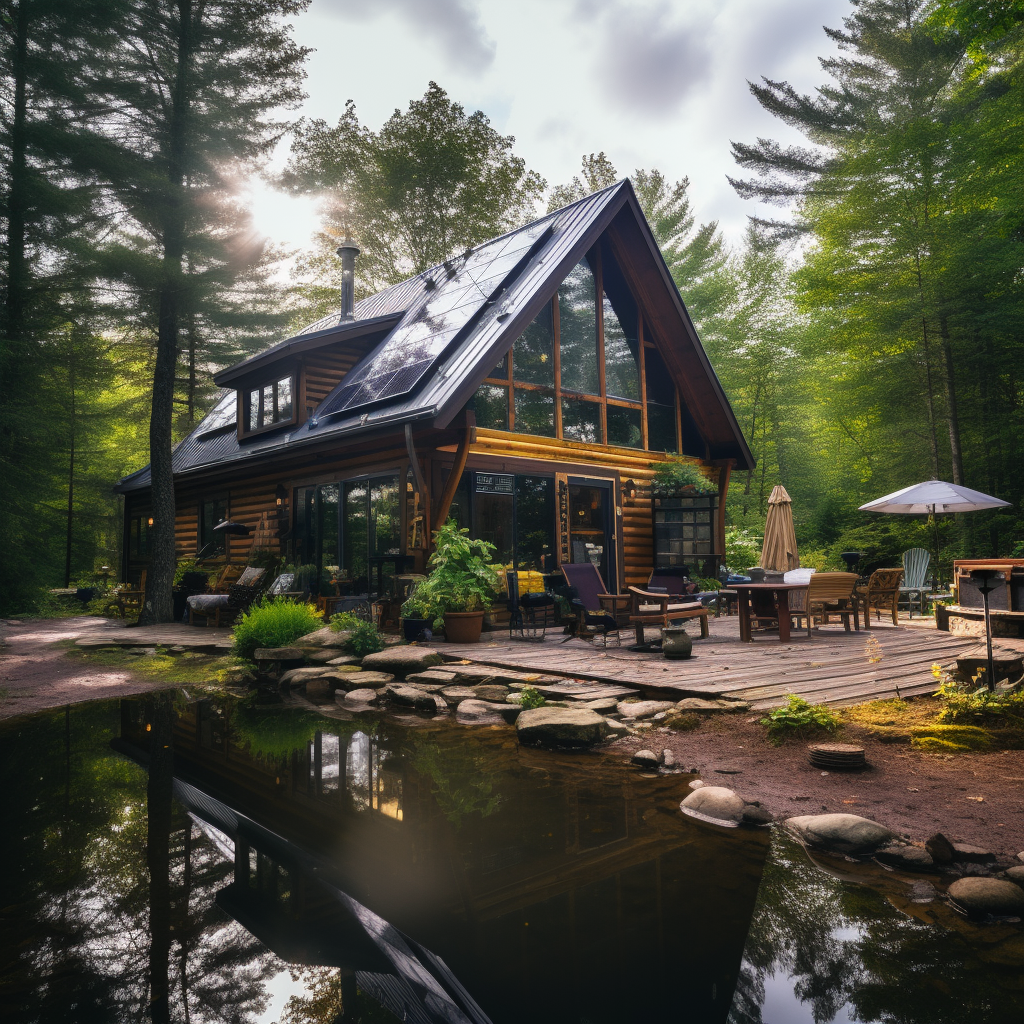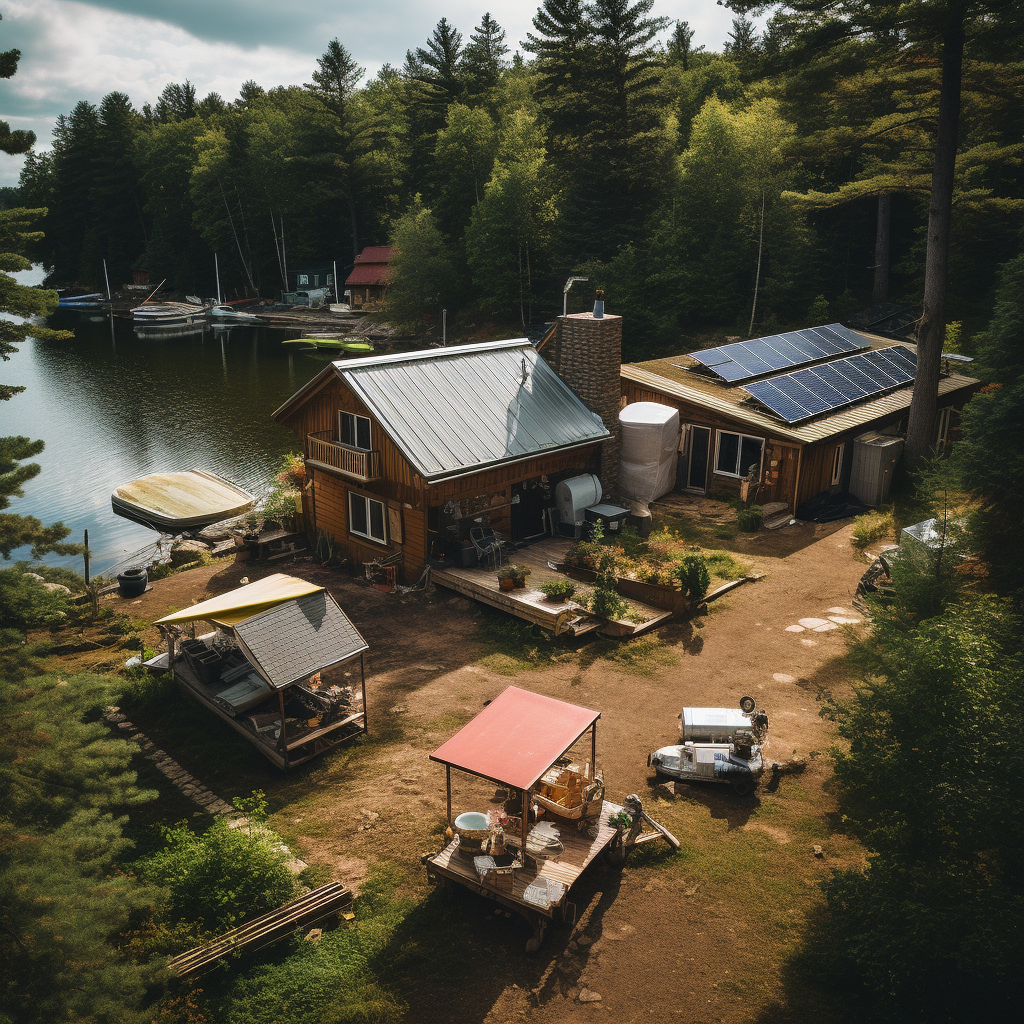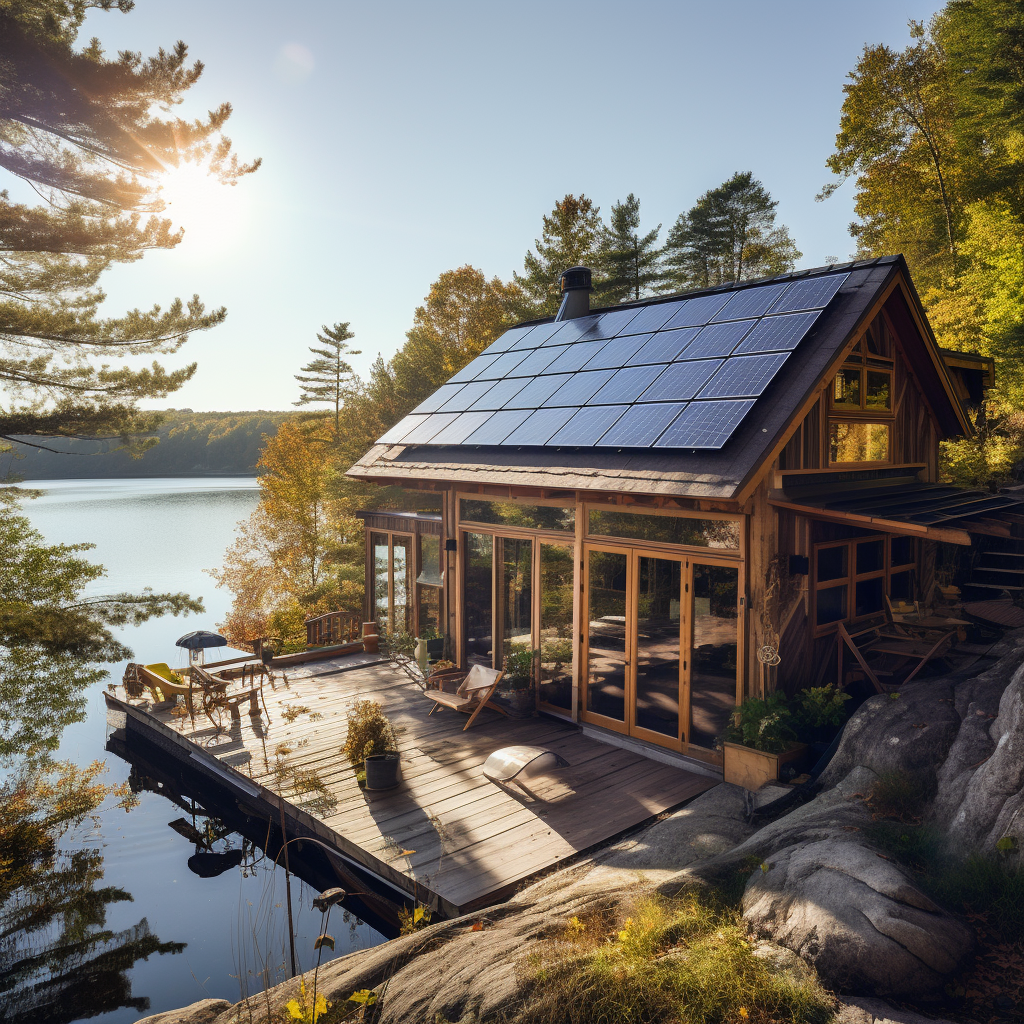Introduction to off-grid living in Ontario
Tired of the hustle and bustle of city life? Dreaming of a simpler way of living? Ask yourself Can you live off-grid in Ontario and look no further! Relying on renewable energy sources and being self-sufficient is the key to this independent lifestyle.
Ontario offers a wealth of opportunities for those looking to go off-grid. With its vast landscapes and natural resources, it’s the perfect place to create your own self-sustaining oasis. From remote cabins to eco-friendly homes, there’s something for everyone.
Plus, technology has made off-grid living more accessible and affordable. There are also many organizations and support networks to help you transition to this lifestyle. They offer workshops on solar panel installation and tips on sustainable gardening – invaluable guidance for your journey.
So don’t wait! Break free from modern society and embrace a life of simplicity and self-sufficiency. Explore the possibilities of off-grid living in Ontario. Join a community that values sustainability and independence. Experience true freedom and reconnect with nature like never before. Just make sure to consider bear encounters, frozen pipes, and never having Wi-Fi again!
Factors to consider when choosing to live off-grid in Ontario
Living off-grid in Ontario requires careful consideration of a few factors:
- Natural resources – water, sunlight.
- Cost and feasibility of alternative energy sources – solar panels, wind turbines.
- Access to essential services – healthcare, groceries.
- Land regulations and building codes.
- Desired level of self-sufficiency.
A unique thrill can come with living off-grid: growing your own food, harnessing renewable energy, and living a simpler lifestyle.
As per CBC News, in recent years Ontario has seen a surge in the number of people opting for off-grid living. This trend reflects a desire to reduce environmental impact and embrace sustainable practices. Who needs modern comforts, when you can live off-grid in Ontario and ‘fix it with duct tape’?

Building and infrastructure for off-grid living in Ontario
Ontario’s off-grid living requires a lot of thought about buildings and infrastructure. Must-haves include sources of sustainable power, water collection and storage systems, as well as waste management solutions. Planning and setting all these up can guarantee an environmentally-friendly and self-reliant lifestyle.
Building an off-grid home in Ontario needs renewable energy sources like solar panels or wind turbines. This provides a sustainable power supply, allowing people to live independently from the grid. Plus, using energy-efficient appliances can further minimize reliance on outside electricity.
Infrastructure for off-grid living also means having water collection and storage systems. Rainwater harvesting is a popular method in Ontario, where big tanks store rainwater for everyday use. This not only decreases dependence on traditional water supplies, but also promotes conservation.
Waste management is another factor for off-grid living in Ontario. Composting toilets give an eco-friendly solution by transforming human waste into nutrient-rich compost for gardening. Plus, recycling and reusing can reduce waste production and minimize the environmental impact.
Off-grid living in Ontario is getting more popular due to its benefits like sustainability and independence. This movement started from people who wanted different lifestyles away from crowded cities, while looking after their ecological footprint.
Off-grid buildings and infrastructure are the basis for sustainable living practices in Ontario. By carefully picking out renewable energy sources, water collection methods, and waste management systems, individuals can create self-sufficient homes that fit their environmental values.
Off-grid living gives an opportunity to break away from the typical urban lifestyle while being conscious of the environment. With right planning and implementation of building and infrastructure elements, off-grid living becomes not only possible, but also very satisfying for those pursuing a different life in Ontario’s beautiful landscapes.
Challenges and considerations of living off-grid in Ontario
Living off-grid in Ontario can be a challenge. There are many factors to keep in mind:
- Sustainable energy sources such as solar or wind turbines are essential.
- Plus, a reliable water supply is needed.
- Waste management strategies must also be in place.
- Winter preparedness is key for Ontario’s cold weather.
- Additionally, check local regulations and obtain permits.
- For guidance, consult experts or join off-grid communities.
Off-grid living can still be great – from cabins to treehouses; no electricity needed!
Success stories and examples of off-grid living in Ontario
Ontario is filled with success stories of individuals embracing off-grid living. Let’s explore real-life experiences to see the feasibility and benefits!
Success Stories:
It’s inspiring to learn how folks in Ontario have taken on off-grid living. Here are some examples:
| Name | Location | Renewable Energy Source | Description |
|---|---|---|---|
| Sarah Thompson | Muskoka | Solar Panels | Sarah powers her entire home with solar panels. She lives sustainably and independently. |
| James Wilson | Haliburton | Micro-Hydro System | James has installed a micro-hydro system near his property. This small-scale hydropower provides clean energy all year round. |
| Rachel Smith | Thunder Bay, Northwestern Ontario | Wind Turbine | Rachel has erected a wind turbine to take advantage of the strong winds in her region. Generating electricity and reducing environmental impact. |
These individuals have successfully implemented renewable energy solutions. Living independently while reducing their reliance on traditional sources. Their approaches show resilience and adaptability for self-sufficient living.
Community:
Off-grid living in Ontario often comes with a sense of community. People work together to share resources, knowledge, and experiences. This collaboration creates a supportive environment where like-minded individuals can thrive.
Conclusion:
Living off-grid in Ontario may not be for everyone. But saving money on utility bills is worth the adventure…just make sure you’re stocked up on bug spray!

Conclusion: Is off-grid living in Ontario feasible and sustainable?
Off-grid living in Ontario is possible and sustainable. There’s lots of natural resources and the gov’t helps. Solar power lets you have reliable electricity. Rainwater harvesting systems and composting toilets make it even more sustainable. It’s been a success for decades. John and Mary built an off-grid home near Algonquin Park. Solar panels power everything. Their veggie gardens and animals provide fresh food and even some income from farmer’s markets. Off-grid living is a great way to be independent from traditional utilities.




